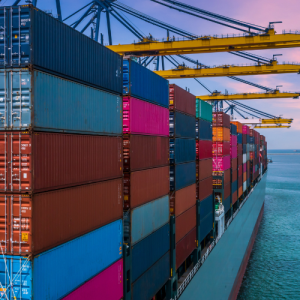Digital freight platforms provide businesses with tools for competitive ocean freight pricing, offering instant quotes, real-time tracking, and seamless documentation management.
In an increasingly globalized world, the ability to ship goods efficiently and cost-effectively is crucial for businesses of all sizes. Finding the best LCL rates and ocean freight shipping quotes can be time-consuming for those relying on ocean freight services. However, with the rise of digital freight forwarding platforms, businesses can now streamline their shipping operations, ensuring they get competitive rates while improving efficiency. This article explores how digital freight platforms leverage real-time data and automation to help companies secure the best possible ocean pricing.
Instant Shipping Quotes and Rate Comparisons
Traditional freight forwarding involved manual processes and lengthy quote comparisons across multiple carriers. This could take days, slowing down decision-making. Digital platforms, however, offer instant shipping rates by connecting businesses with multiple ocean freight forwarders in real-time. Through a centralized platform, companies can access online shipping quotes, compare LCL ocean freight prices, and secure freight shipping deals tailored to their needs within minutes.
The ability to instantly compare multiple ocean freight shipping quotes allows businesses to make informed, cost-effective decisions without intermediaries. These platforms often have built-in rate management systems that automatically optimize shipping routes and costs based on demand and carrier availability.
Real-Time Data for Better Decision Making
One of the significant advantages of digital freight forwarding platforms is their ability to leverage real-time data. Whether it’s monitoring LCL cargo rates, tracking vessel schedules, or predicting potential disruptions, digital platforms give businesses the visibility they need to optimize their shipping decisions. With up-to-date information on shipping conditions, rates, and carrier availability, companies can anticipate market changes and adjust their logistics accordingly.
This real-time data isn’t just useful for optimizing costs but also helps avoid costly delays. For instance, if a business has visibility over port congestion or potential weather disruptions, it can proactively reroute shipments, ensuring timely delivery.
Cost Savings Through Automation
Digital freight platforms enable ocean freight forwarders and shippers to reduce costs through automation. Many digital tools automatically calculate LCL rates based on shipment volume, destination, and carrier availability. This reduces the manual effort in calculating shipping costs and helps businesses save money by offering real-time price comparisons.
Automation also plays a crucial role in eliminating human errors. By automating documentation management, customs clearance, and other administrative tasks, digital platforms reduce the risk of delays and additional costs due to incomplete paperwork or missed deadlines.
Enhanced Visibility and Shipment Tracking
Another benefit of digital freight platforms is the enhanced visibility they provide throughout the shipping process. Businesses can track their shipments in real-time, from when they leave the warehouse to their destination. This level of transparency improves customer satisfaction and helps companies monitor LCL ocean shipping performance.
In the past, tracking international shipments often required extensive communication with freight forwarders and carriers. Digital platforms automate this process today, providing a single access point to track and manage shipments globally. This gives businesses confidence that their goods are moving efficiently and are on schedule.
Scalability and Flexibility
Digital freight platforms offer businesses the flexibility to scale their shipping operations quickly. Whether shipping a full container or opting for Less than Container Load (LCL) services, these platforms enable businesses to handle fluctuating shipping volumes without compromising service or pricing.
Digital platforms are a game-changer for small businesses and those expanding into new markets. By using LCL ocean rates, companies can ship smaller quantities at a fraction of the cost of a full container. Additionally, the flexibility provided by digital tools allows businesses to adjust their shipping strategies in response to market demand, ensuring they maintain competitive pricing even during peak seasons.
With instant access to online shipping quotes, real-time data, and automated processes, these platforms help companies secure the most competitive ocean freight pricing. By leveraging the power of digital tools, companies can reduce costs, enhance visibility, and streamline their logistics operations.
As the logistics industry evolves, embracing digital platforms will be essential for businesses looking to optimize their ocean freight strategies. Whether comparing LCL ocean freight rates or managing larger shipments, digital tools provide the flexibility, transparency, and cost savings needed to succeed in today’s global market.





Leave A Comment
You must be logged in to post a comment.